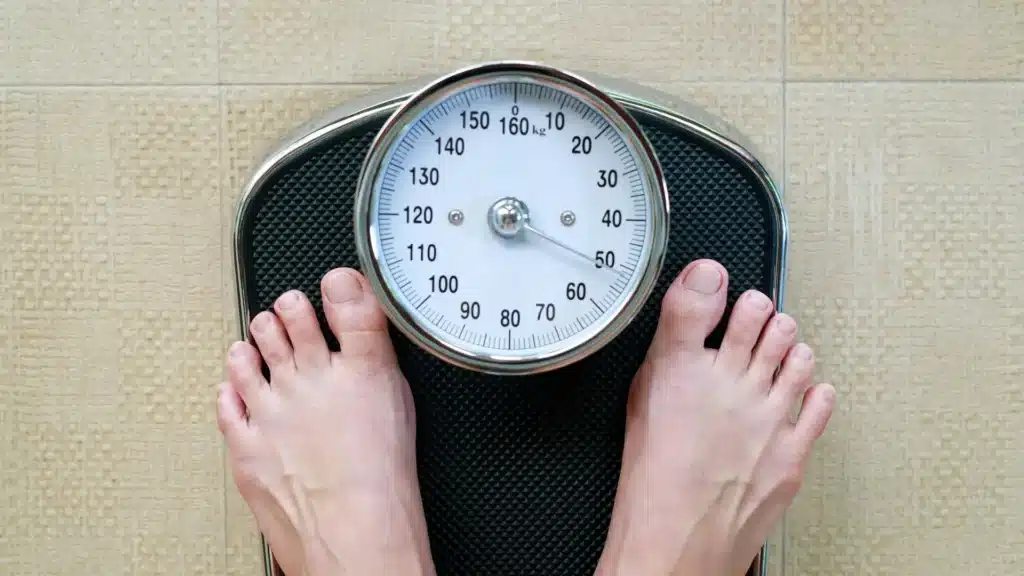Introduction
How Many Hours To Fast For Weight Loss Calculator: In the quest for achieving and maintaining a healthy weight, fasting has gained significant attention as a potential tool for weight loss. Fasting involves abstaining from food and, in some cases, caloric beverages for a specified period of time. The duration of a fast plays a crucial role in its effectiveness for weight loss, as it determines the extent to which the body can tap into its energy reserves and promote fat burning. To help individuals tailor their fasting routines to their weight loss goals, a “fasting duration calculator” has become a valuable tool. This calculator takes various factors into account, such as metabolism, activity level, and dietary habits, to recommend the optimal number of hours to fast for weight loss.
In this article, we will explore the significance of fasting duration in weight loss and how a fasting duration calculator can assist individuals in their journey toward achieving their desired weight and overall health goals. Fasting has gained popularity not only for its potential weight loss benefits but also for its reported positive effects on metabolism, blood sugar control, and overall health. When you fast, your body enters a state of ketosis, where it begins to burn stored fat for energy, as it doesn’t have an immediate source of glucose from food intake. The duration of your fast can determine how deeply your body enters this fat-burning state.
Shorter fasts, such as intermittent fasting for 12 to 16 hours, can help control calorie intake by restricting the time during which you eat. Longer fasts, on the other hand, like extended fasts of 24 hours or more, allow your body to significantly deplete its glycogen stores and tap into stored fat for energy, potentially resulting in more pronounced weight loss. The calculator will ask about your desired weight loss rate and how aggressive you want your fasting plan to be. By inputting these factors, you can get personalized recommendations on the number of hours or days to fast, along with guidance on when to break your fast and what to eat during your eating window.

How many hours should I fast to lose weight fast?
According to some researchers, fasting for 10–16 hours can cause the body to turn its fat stores into energy, which releases ketones into the bloodstream.
Choosing the Right Fasting Duration
16/8 Method: This is one of the most popular and sustainable fasting methods for weight loss. It allows you to fast for 16 hours, which helps control calorie intake and may lead to weight loss. During the 8-hour eating window, it’s essential to make healthy food choices and not overcompensate for the fasting period.
5:2 Diet: On the two fasting days, the calorie restriction is significant, which can lead to weight loss. However, it may not be sustainable for everyone, and it’s crucial to ensure you are still getting essential nutrients on fasting days.
Eat-Stop-Eat and Alternate-Day Fasting: These methods involve longer fasting periods, which may lead to more substantial calorie deficits and potential weight loss. However, they can be challenging to maintain long-term and may not be suitable for everyone.
Customization: It’s essential to customize your fasting approach to fit your lifestyle and preferences. Some people may find success with a combination of these methods or by adjusting the fasting duration according to their needs.
Is 12 hours long enough to fast for weight loss?
Fasting for either 12 hours or 16 hours can promote fat burning. During a fast, the body depletes its stored glycogen and begins to rely on stored fat for energy. While both 12-hour and 16-hour fasting can promote fat burning, it’s possible that a 16-hour fast may be more effective.
The Science Behind a 12-Hour Fast
Weight Management: A 12-hour fast can help regulate calorie intake by limiting the time available for eating. By reducing the number of hours you can consume food, you may naturally consume fewer calories, which can contribute to weight loss.
Improved Insulin Sensitivity: Some studies suggest that time-restricted eating, even over a shorter duration like 12 hours, can improve insulin sensitivity. This can be beneficial for blood sugar regulation and potentially support weight loss efforts.
Enhanced Fat Burning: As your body transitions from using glycogen to burning fat during fasting, it may promote fat loss over time.
Digestive Rest: Giving your digestive system a break for 12 hours can promote better digestion and may reduce the risk of digestive issues.
Is 12 Hours Enough for Weight Loss
Caloric Intake: While a 12-hour fast can help limit calorie consumption, it’s crucial to make healthy food choices during your eating window. Eating high-calorie, unhealthy foods can counteract the benefits of fasting.
Consistency: Consistency is key to seeing results with any fasting regimen. If you consistently maintain a 12-hour fasting window and pair it with a balanced diet and regular physical activity, you are more likely to achieve your weight loss goals.
Individual Variability: Weight loss is highly individual, and what works for one person may not work as effectively for another. Some individuals may need a longer fasting duration or a different fasting approach to see significant results.
At what hour of fasting do you start losing weight?
Because your body will typically begin to burn fat after about 12 hours of fasting, your weight loss starts at about 5 a.m. and continues to do so for the next four hours.
When Does Weight Loss Start During Fasting
The timing of weight loss during fasting can vary, but it often begins within the first 24-48 hours. This is when the body shifts into ketosis and starts to use stored fat for energy. During this period, you may notice a decrease in the number on the scale, primarily due to the loss of water weight linked to glycogen depletion.
Fasting Duration: Longer fasts are likely to result in more significant weight loss over time, but they can also be more challenging to sustain.
Caloric Intake: The fewer calories you consume during your eating window, the more substantial your calorie deficit will be, contributing to faster weight loss.
Metabolism: Individuals with a higher basal metabolic rate (BMR) may experience quicker weight loss as they burn more calories at rest.
Physical Activity: Regular exercise can enhance the calorie deficit and contribute to faster weight loss during fasting.
Overall Diet: The quality of the foods you eat during your eating window plays a crucial role. A balanced, nutrient-dense diet supports overall health and effective weight loss.
How much weight will I lose in a 7 day fast?
Fasting did seem to spur noticeable short-term weight loss, the researchers found. People who fasted for five days lost about 4% to 6% of their weight; those who fasted for seven to 10 days lost about 2% to 10%, and those who fasted for 15 to 20 days lost 7% to 10%.
Factors Influencing Weight Loss During a 7-Day Fast
Starting Weight: Your initial body weight plays a significant role in how much weight you’ll lose during a 7-day fast. Heavier individuals tend to lose more weight initially because they have a larger number of stored calories in the form of glycogen and fat.
Caloric Intake: The extent of your calorie deficit during the fast will affect your weight loss. A 7-day fast typically results in a substantial calorie deficit, especially when combined with no calorie consumption.
Metabolism: Your basal metabolic rate (BMR) determines the number of calories your body burns at rest. Individuals with higher metabolisms may experience slightly faster weight loss during a fast.
Activity Level: Physical activity can enhance the calorie deficit and contribute to weight loss during a 7-day fast. However, it’s crucial to balance activity with rest and listen to your body’s signals.
Hydration: Initial weight loss during a fast often includes water weight due to glycogen depletion. As you lose glycogen, you release stored water. Staying hydrated is essential for overall health and helps support metabolic processes.
Do you burn fat on a 3 day fast?
Weight Loss and Metabolic Reset: Three-day water fasts can jumpstart weight loss by encouraging the body to utilize stored fat for energy. This short-term fasting also helps reset the metabolism, making it easier to maintain a healthy weight in the long run.
Fat Burning During a 3-Day Fast
Depletion of Glycogen Stores: When you begin a fast, your body initially relies on its stored glycogen, which is a form of carbohydrate stored in the liver and muscles. This glycogen is quickly depleted within the first 24-48 hours of fasting.
Transition to Ketosis: Once glycogen stores are exhausted, the body enters a state called ketosis. In ketosis, the liver begins to convert fat into molecules called ketones, which serve as an alternative fuel source for the brain and body.
Fat Breakdown: During ketosis, the body begins breaking down stored fat for energy. This is where fat burning, and subsequent weight loss, becomes prominent. The rate at which fat is burned depends on several factors, including your metabolism, activity level, and the extent of the calorie deficit.
Preservation of Lean Body Mass: One of the advantages of fasting is that it tends to preserve lean body mass (muscle) while primarily using fat for energy. The body prioritizes fat stores over muscle for fuel.
What is the best fasting length?
Fasting for 16 hours per day can be an optimal fasting length for people who are physically active and work out most days of the week because the eight-hour eating window still allows for plenty of time to get in a workout during that period of time when you can fuel your body before and after your workout.
Intermittent Fasting (IF)
The 16/8 Method: This method involves fasting for 16 hours each day and limiting your eating window to 8 hours. It’s one of the most popular and sustainable forms of IF.
The 14/10 Method: Similar to the 16/8 method but with a slightly shorter fasting duration. This approach may be more manageable for beginners.
The 5:2 Diet: Involves regular eating for five days a week and consuming significantly fewer calories (usually around 500-600 calories) on two non-consecutive fasting days.
Extended Fasts
24-Hour Fast: A full day of fasting where you consume no calories. This can be done once or twice a week.
36-Hour Fast: Fasting for a full day and night, extending into the following morning. For example, from dinner one day to breakfast two days later.
72-Hour Fast: A 3-day fast where you abstain from food for a continuous 72-hour period. Often used for deeper autophagy and fat loss.
Alternate-Day Fasting
Involves alternating between days of regular eating and days of fasting or consuming very few calories.
Extended Fasts (Longer Than 3 Days)
Fasts lasting longer than 72 hours, such as 5-day, 7-day, or even longer fasts. These are usually done under medical supervision and require careful planning.
What happens after 14 hours of fasting?
If you don’t eat for 10–16 hours, your body will go to its fat stores for energy, and fatty acids called ketones will be released into the bloodstream.
Glycogen Depletion: After approximately 12 hours of fasting, your body’s glycogen stores begin to deplete. Glycogen is a stored form of carbohydrates, primarily found in the liver and muscles. As these stores are used up, your body starts looking for alternative energy sources, primarily fat.
Transition to Ketosis: After the glycogen stores are depleted, your body enters a metabolic state called ketosis. During ketosis, the liver begins converting stored fat into ketone bodies, which serve as an alternative fuel source. This transition usually occurs around the 14-hour mark of fasting.
Increased Fat Burning: Once in ketosis, your body relies more on fat for energy. This increased fat burning is one of the primary goals of fasting, as it can contribute to weight loss over time.
Stable Blood Sugar Levels: Fasting for 14 hours can help stabilize blood sugar levels by reducing insulin production and improving insulin sensitivity. This is especially beneficial for individuals with prediabetes or insulin resistance.
Enhanced Autophagy: Autophagy is a cellular process that helps remove damaged or dysfunctional components from cells. It becomes more active during fasting, potentially supporting cellular repair and longevity.
What is the 4 4 12 fasting rule?
The 4-4-12 method has a shorter fasting window—12 hours—but eliminates snacking between meals. The goal here is to fast for at least four hours between breakfast and lunch, four hours between lunch and dinner, and at least 12 hours between dinner and breakfast the next day.
Potential Benefits of the 4:4:12 Fasting Rule
Simplicity: It’s a straightforward fasting pattern that can be easy to follow, making it suitable for beginners.
Digestive Health: The 12-hour rest phase may promote better digestion and reduce the risk of digestive discomfort during sleep.
Improved Sleep: Going to bed without a full stomach may lead to improved sleep quality for some individuals.
Metabolic Benefits: Like other forms of time-restricted eating, the 4:4:12 rule may help regulate blood sugar levels and improve insulin sensitivity.
Potential Weight Management: By limiting the eating window, some people find it easier to control calorie intake, which can contribute to weight management goals.

Conclusion
The concept of fasting duration plays a vital role in the realm of weight loss, and the advent of fasting duration calculators has revolutionized the way individuals approach their weight management goals. These calculators offer personalized fasting recommendations based on factors such as metabolism, activity level, dietary preferences, and weight loss objectives. By tailoring fasting durations to individual needs, these tools empower individuals to strike the right balance between sustainable weight loss and maintaining overall health.
However, it’s crucial to remember that fasting is not a one-size-fits-all solution. Before embarking on any fasting regimen, seeking guidance from a healthcare professional is highly advisable. They can provide personalized advice, taking into account any underlying health conditions and ensuring that the chosen fasting duration aligns with individual health goals.
In essence, the use of a fasting duration calculator can be a valuable asset in the pursuit of weight loss and improved well-being. It provides a structured approach to fasting that can enhance the effectiveness of weight management efforts while promoting a sustainable and balanced lifestyle.

